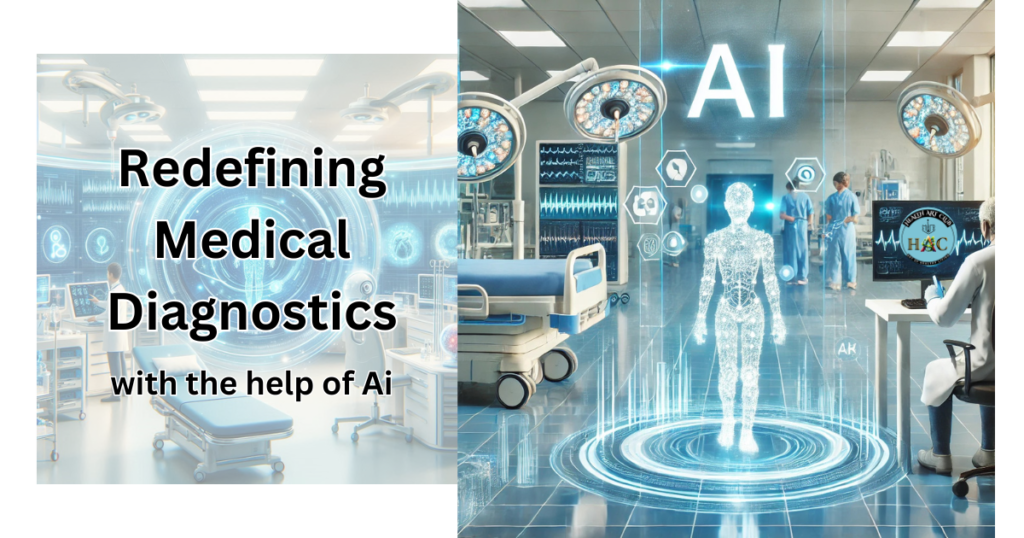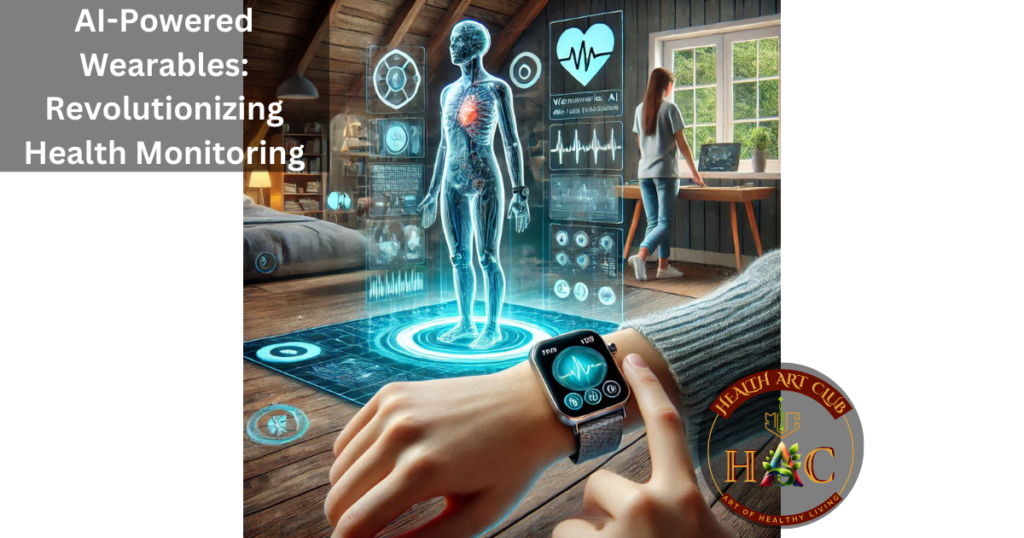Introduction
AI is transforming healthcare in ways once thought impossible. In 2025, advancements in artificial intelligence are making healthcare faster, more accurate, and accessible for everyone. These innovations promise not only to improve patient outcomes but also to address some of the biggest challenges in medicine. From improving diagnostics to optimizing personalized treatments, AI is at the lead of a healthcare transformation.
Let’s dive into the 10 groundbreaking artificial intelligence medical advancements and healthcare technologies in 2025 and explore how they’re changing lives for the betterment of patients as well as doctors.

1. How Is AI Redefining Medical Diagnostics in 2025?
AI in Healthcare 2025 is enhancing the accuracy of diagnoses through advanced imaging technologies. Tools like AI-powered radiology systems now detect diseases earlier than ever. For instance:
- Breast Cancer Detection: AI algorithms analyze mammograms with up to 99% accuracy, significantly reducing false positives and negatives.
- Pathology: AI systems can identify microscopic cancer cells, aiding pathologists in quicker and more accurate decision-making.
Key Benefits:
- Faster results.
- Increased diagnostic precision.
- Reduced human error.
2. Can AI-Powered Robots Make Surgeries Safer?
AI-enhanced robotic surgery systems provide unmatched precision, minimizing human errors in critical procedures. Surgeons use AI tools for:
- Real-Time Feedback: Robots analyze and guide incisions with millimeter accuracy.
- Risk Reduction: AI predicts potential complications during surgery and suggests alternatives.
Example:
Da Vinci Surgical System uses AI to enhance the surgeon’s capabilities, leading to faster recovery times and better outcomes for patients.
3. How Are AI-Driven Wearables Enhancing Remote Patient Monitoring?
AI-powered medical devices are revolutionizing how healthcare professionals monitor patients in real-time. Wearable technology integrated with artificial intelligence enables personalized and proactive healthcare like never before.
What’s New in 2025?
Wearables such as smartwatches and biosensors now offer:
- Continuous glucose monitoring for diabetics, providing real-time updates and adjustments. Learn more about diabetes.
- Advanced AI-based alerts that predict cardiac events before symptoms occur empower early medical interventions.
- Sleep pattern analysis and stress level tracking enable doctors to create holistic treatment plans.
By combining AI healthcare predictions 2025 with wearable technology, patients and healthcare providers experience an unprecedented level of convenience and efficiency. The devices also integrate seamlessly with telemedicine platforms, creating a unified approach to remote patient care. Promotes preventive care and helps manage chronic conditions, ultimately improving the quality of life and reducing hospital readmissions. In medical centers, these devices enable doctors to provide proactive care from anywhere in the world, making them a major AI medical breakthroughs of 2025.

4. How Is AI Revolutionizing Personalized Medicine?
AI tailors treatment plans by analyzing a patient’s genetic data, past medical history, and lifestyle. AI medical innovations in personalized medicine ensure more effective therapies while reducing side effects.
Applications:
- Genomics: AI decodes DNA faster, identifying disease risks and potential cures.
- Drug Response Prediction: AI determines how individuals might react to specific medications.
5. What Role Does AI Play in Drug Discovery?
Traditional drug development takes years, but AI accelerates this process significantly. Machine learning models predict drug efficacy, eliminating less promising compounds early.
2025 Milestone:
AI-powered platforms helped identify 15 new drug candidates within months, addressing previously “untreatable” diseases.
6. How Is AI Improving Telemedicine?
Telemedicine has skyrocketed in popularity, with AI providing:
- Virtual Health Assistants: AI chatbots schedule appointments, provide medication reminders, and answer common queries.
- Language Translation: Breaking barriers in global healthcare by translating patient-doctor interactions in real-time.
7. Can Predictive Analytics Transform Preventive Healthcare?
AI analyzes patient records to predict illnesses before symptoms appear. Hospitals leverage predictive analytics to reduce emergency admissions by focusing on:
- Early detection of chronic diseases like diabetes.
- Monitoring vulnerable populations for flu outbreaks.
8. How Is AI Used in Epidemic Management?
AI plays a vital role in tracking and controlling disease outbreaks. By analyzing global health data, AI tools:
- Predict the spread of infections.
- Help governments allocate resources effectively.
Example:
During the COVID-19 pandemic, AI predicted hot zones, enabling timely containment strategies. Similar applications are now being applied to other emerging threats.
9. What Ethical Challenges Does AI Face in Healthcare?
While AI offers many benefits, ethical concerns include:
- Data Privacy: How secure is patient information?
- Bias: Algorithms may unintentionally favor certain demographics, leading to unequal care.
- Accountability: Who is responsible when AI makes errors?
In 2025, regulatory frameworks are addressing these issues to ensure equitable healthcare delivery.
10. How Are AI Innovations Making Healthcare More Accessible?
AI bridges gaps in underserved areas, providing quality care to remote locations and suburbs. For example:
- AI-enabled mobile apps guide patients in rural areas through health screenings.
- AI-powered drones deliver medical supplies to hard-to-reach regions.
These innovations are narrowing global healthcare disparities and ensuring better care for all.
Conclusion
AI in Healthcare 2025 is revolutionizing the industry, providing unprecedented advancements that are smarter, faster, and more accessible. From wearable technology that enables real-time monitoring to AI-driven healthcare solutions that personalize patient care, the innovations of today promise a brighter and healthier future for all.
What’s more, these developments aren’t just improving the quality of care; they’re bridging gaps in underserved regions, promoting inclusivity, and reducing healthcare disparities. While ethical and regulatory challenges remain, ongoing efforts to address these concerns ensure a balanced approach to leveraging AI in healthcare.
As we embrace this AI-powered era, the question isn’t whether AI will transform healthcare—it’s how soon and how extensively these changes will positively impact your life. So, are you ready to explore the possibilities? Stay updated with the latest insights and join the revolution in modern medicine with HealthArtClub.com.
Learn more from the authentic resources about artificial intelligence and healthcare innovations.
Frequently Asked Questions (FAQs):
Q1: What is AI in healthcare?
AI in healthcare involves using algorithms and machine learning to enhance medical practices, from diagnostics to patient care.
Q2: Are AI-powered diagnostic tools accurate?
Yes, many AI systems, such as those used in radiology, achieve accuracy rates exceeding 95%.
Q3: Can AI predict diseases?
AI can analyze health data to predict illnesses, enabling early intervention and prevention.
Q4: Will AI replace doctors?
AI is a supportive tool, enhancing but not replacing the expertise and empathy of doctors.
Q5: How safe are AI wearables?
Most AI-driven wearables follow stringent safety regulations, offering accurate and reliable data.
Q6: Is AI in healthcare expensive?
While initial costs can be high, AI often reduces long-term medical expenses through preventive care and efficiency.

One Response